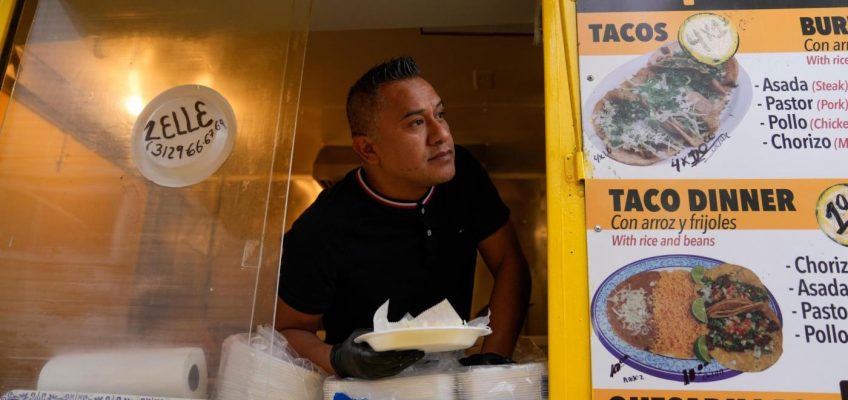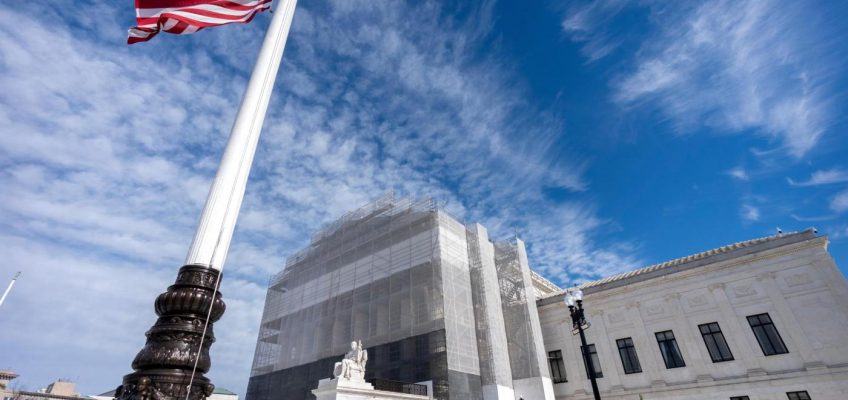By MICHAEL LIEDTKE, Associated Press Technology Writer
Google will confront the U.S. government’s latest attempt to topple its internet empire in federal court on Friday as a judge considers how to prevent the abusive tactics that culminated in parts of its digital ad network being branded as an illegal monopoly.
Related Articles
Bubble fears ease but investors still waiting for AI to live up to its promise
Cracker Barrel shareholders vote to keep CEO despite logo debacle
Vance says Americans need patience on prices but says ‘We hear you’ on affordability concerns
Give to the Max Day surpasses last year’s high with $37.8 million donated
GE Appliances bolsters ties with Minnesota, US suppliers as it moves production from China to Kentucky
The courtroom showdown in Alexandria, Virginia, will pit lawyers from Google and the U.S. Department of Justice against each other in closing proceedings focused on the complex technology that distributes millions of digital ads across the internet each day.
After a lengthy trial last year, U.S. District Judge Leonie Brinkema ruled in April that pieces of Google’s ad technology had been rigged in a way that made it an illegal monopoly. That set up another 11-day trial earlier this fall to help Brinkema determine how to remedy its anti-competitive practices.
Friday’s closing arguments will give both Google and the Justice Department a final chance to sway Brinkema before she issues a ruling that probably won’t come until early next year.
The Justice Department wants Brinkema to force Google to sell some of the ad technology that it has spent nearly 20 years assembling, contending a breakup is the only way to rein in a company that the agency’s lawyers condemned as a “recidivist monopolist” in filings leading up to Friday’s hearing.
The condemnation refers not only to Google’s practices in digital advertising but also to the illegal monopoly that it unleashed through its dominant search engine. Federal prosecutors also sought a breakup in the search monopoly case, but the judge handling that issue rejected a proposal that would have required Google to sell its popular Chrome web browser.
Although Google is still being ordered to make reforms that it’s resisting, the outcome in the search monopoly case has been widely seen as a proverbial slap on the wrist. The belief that Google got off easy in the search case is the main reason the market value of its parent company Alphabet surged by about $950 billion, or 37%, to nearly $3.5 trillion since U.S. District Judge Amit Mehta’s decision came out in early September.
That setback hasn’t discouraged the Justice Department from arguing for a breakup of an ad tech system that handles 55 million requests per second, according to estimates provided by Google in court filings.
The huge volume of digital ads priced and distributed through Google’s technology is one of the main reasons that the company’s lawyers contend it would be too risky to force a dismantling of the intricate system.
“This is technology that absolutely has to keep working for consumers,” Google argues in documents leading up to Friday’s hearing. The company’s lawyers blasted the Justice Department’s proposal as a package of “legally unprecedented and unsupported divestitures.”
Besides arguing that its own proposed changes will bring more price transparency and foster more competition, Google is also citing market upheaval triggered by artificial intelligence as another reason for the judge to proceed cautiously with her decision.
In his decision in the search monopoly case, Mehta reasoned that AI was already posing more competition to Google.
But the Justice Department urged the judge to focus on the testimony from a litany of trial witnesses who outlined why Google shouldn’t be trusted to change its devious behavior.
The witnesses “explained how Google can manipulate computer algorithms that are the engine of its monopolies in ways too difficult to detect,” the Justice Department argued in court papers.




